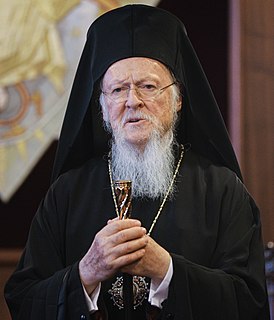A Quote by Mikhail Gorbachev
I remember Secretary of State [George] Shultz one day saying that America is an economic model for the world. I replied to him that America represents 5 percent of the world's population and consumes 30 percent of the world's energy. What if everyone in the world lives like Americans? Where do we get the energy for this standard of living?
Related Quotes
We have the greatest resource universities in the world, the only place in the world. We have the most productive workforce in the world. We have the most agile venture capitalists in the world. We have a situation where right now in the United States of America, we are near energy independent. North America is beginning to be the epicenter of energy. What is it that makes people think that this is not going to be the American century? I don't get it.
The money economy thus leaves a large ecological footprint, defined as the amount of land and resources required to meet a typical consumer's needs. For example, with only about 4% of the world's population, the United States, the largest money economy, consumes in excess of one-quarter of the world's energy and materials and generates in excess of 25 percent of the world's greenhouse gas emissions.
I believe in an America that is on the march - an America respected by all nations, friends and foes alike - an America that is moving, doing, working, trying - a strong America in a world
of peace. That peace must be based on world law and world order, on the mutual respect of all nations for the rights and powers of others and on a world economy in which no nation lacks the
ability to provide a decent standard of living for all of its people.
Fifty percent of the world's population lives in cities. In a couple of decades, 70 percent of the world's population will be living in cities. Cities are where the problem is. Cities are where the solution is, where creativity exists to address the challenges and where they have most impact. This is why, in 2005, the C40 was founded, an organization of cities that address climate change. It started with 18 cities; now it's 91. Cities simply are the key to saving the planet.
U.S. industries from steel-making to plastics synthesis are among the world's most energy-efficient; American agriculture is highly productive, as are America's railroads. But for decades, Americans themselves have been living beyond their means, wasting energy in their houses and cars and amassing energy-intensive throwaway products on credit.
Man has sought to take from the natural world not only that which is necessary for his stability and survival, but often seeks to satisfy his perceived and ultimately false psychological needs, such as his need for self-display, luxuries and the like. Twenty percent of humanity consumes eighty percent of the world's wealth and is accountable for an equal percentage of the world's ecological catastrophes.
I think we have not done a good job of explaining to people in rural America what is actually happening, number one. And, number two, we're not expressing appreciation and acknowledging the contribution that rural America makes. Where does your food come from? Where does the water come from? Where does the energy feedstock come from? It all comes from rural areas. Where does your military come from? Nearly 35 to 40 percent of the military is from 15 percent of America's population living in rural America. It makes a tremendous contribution to this country. It just isn't recognized.
My job is to communicate to the American people that the Muslim world is filled with extraordinary people who simply want to live their lives and see their children live better lives. My job to the Muslim world is to communicate that the Americans are not your enemy. We sometimes make mistakes. But if you look at the track record America was not born as a colonial power, and that the same respect and partnership that America had with the Muslim world as recently as 20 or 30 years ago, there's no reason why we can't restore that. And that I think is going to be an important task.












































